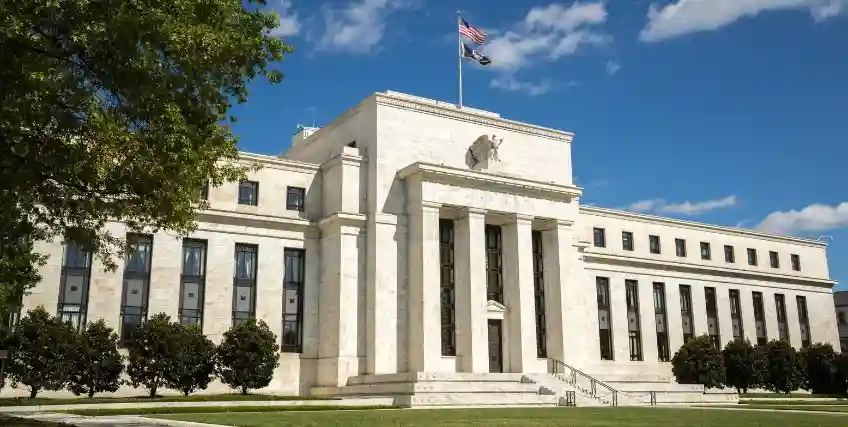How to Choose the Best Secured Loan for Your Small Business
Sep 05, 2025 | Last Updated on: Sep 08, 2025

Small business owners often reach a point where they need to borrow to continue growing or meet monthly expenses. The challenge is figuring out which loan fits best, especially if they have spotty credit, their profits aren't high enough, or they're buying a large asset. A secured loan can be an excellent option to meet your financial needs if you're having trouble getting approved for an unsecured loan. The best secured loans can be a great solution for buying real estate, covering gaps in cash flow, debt consolidation, or purchasing equipment. Learn more about the best secured loans, alternative financing options, and how to choose the right lender.
Why Small Business Owners Borrow
Every business has its own reasons for seeking funding. These are common business situations that lead business owners to borrow money using the best secured loans:
- Debt refinancing. High-interest loans can drain profits. A secured loan with better terms can replace multiple debts and make repayment simpler. For some borrowers, refinancing can mean lower interest rates, smaller monthly payments, and less stress on your business bank account.
- Business expansion. Opening another location, adding staff, or upgrading operations takes capital you may not have on hand. A larger loan with longer repayment terms can make expansion possible without putting daily cash flow at risk.
- Real estate purchases. Owning the building you operate in provides stability and often builds equity. Commercial real estate loans are a type of secured loan where the property itself serves as collateral.
- Cash flow support. Seasonal businesses often need help to get through slow months without cutting staff or falling behind on bills. In some cases, a business line of credit or short-term secured loan can fill that gap.
- Large asset purchases. Vehicles, machinery, and technology upgrades can improve efficiency but require upfront cash. Auto loans for business use, for example, can be secured by the vehicle with a fixed rate and lower monthly payment.
- Working capital. Some businesses need a cushion to cover everyday expenses without stressing the budget.
Secured Loans vs. Unsecured Loans
Choosing between one of the best secured loans and an unsecured loan comes down to risk, cost, and availability.
Secured loans require you to pledge collateral such as property, vehicles, equipment, a savings account, or even a certificate of deposit. Lenders like this because it reduces their risk if you are unable to make payments. For you, it often means lower interest rates, higher loan amounts, and longer repayment terms.
Unsecured loans don’t require collateral. Approval depends heavily on your credit score, credit report, and profitability. They tend to have higher loan rates and smaller loan amounts. That said, they can be approved quickly.
If you have strong collateral and can meet eligibility requirements, the best secured loans usually cost less over time. But if you don’t have valuable assets or have bad credit, an unsecured option may be your only choice.
Pros and Cons of Secured Loans
Pros
- Generally lower interest rates compared to unsecured personal loans or credit cards
- Higher loan amounts, which makes larger loans possible for real estate or expansion projects
- Longer repayment terms to help manage monthly payments
- Easier loan approval for borrowers without perfect credit history
- Can help establish or build your business credit profile over time
Cons
- Risk of losing the pledged asset if you default
- Approval process can be slower due to collateral valuation and loan calculator reviews
- Possible added costs for appraisals or inspections
- Not an option if you lack valuable business or personal assets
Common Types of Secured Loans
Many conventional loans are secured by the borrower's assets. Here are a few of the most common types of the best secured loans.
Secured Term Loans
These are lump sum loans repaid over a fixed term with interest. They work well for major investments such as buying new equipment, refinancing, or debt consolidation. The collateral could be property, machinery, or other high-value assets. Many of the best secured business loans fall into this category because of their predictable payment schedules and relatively low rates. Borrowers with good credit often qualify for lower interest rates, while those with bad credit may still be eligible with strong collateral.
Commercial Real Estate Loans
The best secured loans are used to purchase, build, or renovate commercial property. With a commercial real estate loan, the property serves as collateral. Building loans typically have repayment terms ranging from 10 to 25 years, and higher loan amounts are common.
Commercial Vehicle Loans
Commercial vehicle loans are one of the best secured loans when businesses need to purchase trucks, vans, or specialized vehicles. The vehicle itself often serves as the collateral. This type of secured loan is similar to auto loans, where loan approval and loan terms depend on the vehicle’s value and your credit history. Some lenders offer a fixed rate, making monthly payments predictable.
Secured Credit Cards
Business credit cards backed by a cash deposit are also known as a savings-secured loan or secured credit card. They’re often used to build business credit and can provide a revolving line of credit for everyday expenses. While not suited for large projects, they can potentially improve credit scores over time and help with future loan eligibility.
Alternative Unsecured Loan Options
If you're unable to get approved for one of the best secured loans, consider these alternative financing options.
Business Line of Credit
A flexible borrowing arrangement where you draw funds as needed and pay interest only on what you use. Can be secured or unsecured depending on creditworthiness and collateral. Interest rates are variable, which can make it harder to budget your monthly payment. As you repay the business line of credit, you'll unlock additional borrowing capacity up to your credit limit.
Unsecured Term Loan
A fixed lump sum loan amount repaid over time without collateral. Higher interest rates than secured loans, but there's no risk to your assets. Interest rates are generally fixed, and your balance is zero when the loan term is over.
Peer-to-Peer Lending
Platforms that connect borrowers with individual or institutional investors. Loan offers vary widely, and while some can be competitive, they may not match the long-term affordability of the best secured loans.
How to Evaluate Lenders
- Reputation and Reliability. Research the track record of lenders who offer the best secured loans. Check reviews from other business owners, verify licensing, and look at their history of handling loan payments and customer service.
- Loan Terms and Conditions. Look at repayment terms, eligibility requirements, early payoff options, and whether there’s an origination fee.
- Interest Rates and APR. Compare both the nominal rate and the annual percentage rate (APR) to see the true cost, including fees. The best secured loans have lower interest rates, which can make higher loan amounts more affordable.
- Collateral Requirements. Understand which assets are acceptable and how they’re valued. Ask if they accept savings accounts, real estate, or certificates of deposit as security.
- Funding Speed. Some of the best secured loans can be funded quickly. Others can take longer, so ask the lender about its turnaround time.
- Customer Service. A responsive lender can help avoid issues during repayment. Ask about account management options, such as linking your checking account for automatic loan payments.
- Specialization. Some lenders focus on certain industries or loan options, which can mean better terms for your type of business.
Understanding Interest Rates and Collateral Requirements
When comparing the best secured loans, pay close attention to interest rates and collateral requirements. A fixed rate stays the same over the life of the loan, making budgeting easier. Variable loan rates can start lower but may rise, increasing monthly payments.
The APR shows the total cost of borrowing, including fees. For example, a low interest secured loan might have an APR only slightly higher than its nominal rate, while unsecured personal loans often have a bigger gap.
Collateral is valued through appraisals or market comparisons. Lenders may only lend a portion of the asset’s value, which is known as the loan-to-value ratio. Depreciating assets, like vehicles, may qualify for smaller loan amounts compared to real estate.
How to Prepare for Your Loan Application
- Check Your Credit Reports. Review both personal and business credit reports. Look for errors and correct them. Good credit can help you qualify for lower interest rates and better loan offers.
- Gather Financial Documents. Prepare tax returns, bank account statements, profit-and-loss statements, and proof of business income.
- Create a Strong Business Plan. Show how the loan will be used and how repayments will be made. Lenders want to see that borrowers have a realistic plan.
- Value Your Collateral. Get professional valuations for assets like property or equipment. This can help you secure higher loan amounts.
- Reduce Existing Debt. Paying down credit cards or other loans can improve your creditworthiness and debt-to-income ratio.
- Determine the Loan Amount You Really Need. Use a loan calculator to test different repayment terms and see how they affect your monthly payment. Avoid taking on larger loans than you can handle.
The Bottom Line About Secured Business Loans
The best secured loans offer a combination of affordability, flexibility, and manageable risk. If you have valuable assets and meet eligibility requirements, they can be a powerful tool for growth. For new companies, secured business loans for startups can provide opportunities that unsecured loans can’t match. Before applying for one of the best secured loans, weigh the risks. A low-interest secured loan can help your business expand, but the collateral you pledge is at stake. Compare loan options, read the fine print, and choose a lender that offers repayment terms and loan rates that match your cash flow and business goals.
FAQs About The Best Secured Loans
How hard is it to qualify for the best secured loans?
Secured loans are often easier to qualify for than unsecured ones because collateral reduces the lender’s risk. Still, you must meet their credit score requirements, provide a clean credit report, and fit their eligibility requirements.
What assets can count as collateral for a secured business loan?
Common collateral includes real estate, vehicles, equipment, a savings account, or a certificate of deposit. Some lenders also accept inventory or accounts receivable.
Will using collateral cut my interest rate?
Pledging valuable collateral with the best secured loans can result in lower interest rates and higher loan amounts.
What happens if you can’t pay back a secured loan?
The lender can seize the collateral to recover their loss. This is why it’s important to choose loan terms and a monthly payment you can sustain.
Are secured loans a good way to build or rebuild credit for a small business?
It’s one of many options you have to build credit for your small business, if the lender reports to credit bureaus.
Frequent searches leading to this page
Term Loans are made by Itria Ventures LLC or Cross River Bank, Member FDIC. This is not a deposit product. California residents: Itria Ventures LLC is licensed by the Department of Financial Protection and Innovation. Loans are made or arranged pursuant to California Financing Law License # 60DBO-35839




